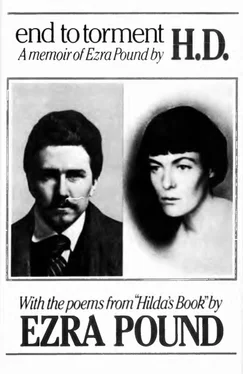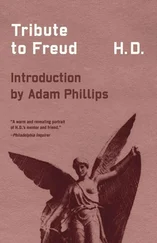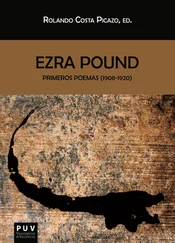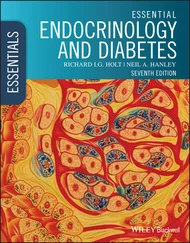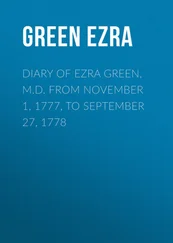There is a stir of dust from old leaves
Will you trade roses for acorns … 21
March 16
“Goodbye Dave, you’ll come over Christmas Day, won’t you?” This “Weekend with Ezra Pound” by Rattray seems to me the first human personal presentation of Ezra that I have seen. True, I had lost touch, was “hiding,” but I had newspapers and periodicals showered on me during the years. The German was too difficult but I felt they cared — but was that a political dodge? I asked a young German whom I met when Erich Heydt had his apartment here in Geduld . The boy said, “No — we read him for himself, in East and in West Germany.” Still, I was not satisfied.
Erich said, “I was disappointed that Ezra did not give your address to the Ratt—.” “Don’t call him the Ratt — but maybe Ratt doesn’t mean rat in your language.” “It’s easier, than Ratt-ray — doch, doch —he gave Richard’s name, anyhow, though he said not to mention E.P. to him, ‘just be the jeune homme modeste .’ Why doesn’t he mention you?” “He must know that I don’t see many people—.” “But it says the Ratt-ray is in Europe, a Fulbright scholar in France. He could come to Zürich. Or are you afraid that he might make fun of you? Of us? What did they think, the girl with the double chin, the double chins, sketching, and the boy with the coarse features, and the one with a face, slippery as if modelled in soap?” “You seem to know the article by heart.” “Wouldn’t these visitors be hurt? The girl, for instance — he said he thought when he first saw her, that she was a patient from another ward.”
Just now, hearing Solveigslied on my radio, I am reminded of how Ezra took me to see Richard Mansfield’s Peer Gynt in Philadelphia. Solveig — Penelope — spinning, weaving. I couldn’t remember how the story ended. I remembered the button-molder and Peer’s escape. He wasn’t melted down again into an unrecognizable nonentity. He remained an entity, he is recognizable. Mad? He always was eccentric. “O, Ezra Pound’s crazy” was the verdict of my schoolgirl contemporaries. “He wanted them to throw him in the pond.” So the story was going around from the beginning, but I forgot it till it cropped up again after the incident that had lost him his job. Spinning? Weaving? Then, I remembered the end of the play, an ancient Solveig in a white wig, a decrepit Peer Gynt in a white wig, meet in the doorway of the original Solveig cottage, on the edge of a picturesque pasteboard forest. No, this is something different.
Dr. Erich Heydt injected me with Ezra, jabbing a needle into my arm, “You know Ezra Pound, don’t you?” This was almost five years ago. It took a long time for the virus or the anti-virus to take effect. But the hypodermic needle did its work or didn’t it? There was an incalculable element. There was something. To say nothing “happened” in Heydt’s studio apartment is to put it very crudely. “Tired? Rest on the couch—.” “No.” The very idea of a studio couch and tenderness brought with it a cloud , not a crowd of memories. “Why don’t you tell me?” “I’m always telling you.” “Yes — but you’re hiding something.”
“What is it? What is it?” We were running to catch the train. “But what does it matter if you miss it — you can take the next one—.” I had stopped suddenly, leaning against a wall, gesturing as for a taxi. He caught my wrist, “There’s plenty of time. You’re hysterical. Something’s upset you—.” “It reminds me, running along a town street — a town — Philadelphia—.” “You’ve something there but you won’t tell me—.” “I can’t tell you. I don’t know what it is.” Room is made for us — but only just — on the end of a crowded station bench. He took my hands in his. “Must you hold my hands like this?” “Yes.” The crowd surged around us. “There’s sure to be someone from Küsnacht — to report Herr Doktor Heydt and Madame A., huddled on a bench together.” No. There was no one from anywhere, we were enclosed in another dimension. A small male child with short red-gold curls poked into the market basket of the woman beside us. Where did he come from? How did he get there? It is only a moment. The inevitable parent emerges, moving against the crowd. Parent? Guardian? He is tall and gaunt. I can not take it in. He isn’t there or I am not there but the market basket is adequately materialized and the typical Hausfrau beside us on the station bench. “I’m sorry, I said you were hysterical. I was just worried.” The train was rumbling nearer. “Should you go back?” “No — I shouldn’t.” But I pushed forward with the crowd. “Tomorrow?” he calls up to the open window of the moving train.
March 17
Erich asked me if my parents liked his parents. “They only met a few times but yes — yes,” I said, “in a purely conventional way. Mrs. Pound was a beautiful woman, well-bred, somewhat affected in manner. One was inclined to be embarrassed and baffled by her little witticisms, her epigrams, as one so often was by Ezra’s. Mr. Pound was hearty, informal, very kind. He was a government assayer at the Philadelphia Mint. He invited a group of us to visit the inner sanctum. He showed us minute weights and measures, explained superficially the analysis of the gold—“ There ,” and he unlocked a heavy door — it seems it was a door to an iron-bound cupboard, rather than a safe; anyway, there were stacks of gold bars—“ Here ,” and coins were piled in neat rows, “will you help yourself,” chuckling heartily.
Has anyone ever noted, reported this, or even known this? It seems to me that Homer Pound’s government job in Philadelphia played an extravagant part in Ezra’s later compulsions. Usury? Usura . Ezra was at one time, it seems, obsessed with this word. I followed these Canto references with difficulty. I don’t mean that Ezra wanted the gold for himself. He wanted to change the world with it. Can one change the world with it?
Gold on her head, and gold on her feet,
And gold where the hems of her kirtle meet,
And a golden girdle round my sweet;
Ah! qu’elle est belle, La Marguerite .
He read me William Morris in an orchard under blossoming — yes, they must have been blossoming — apple trees.
March 18
It was Ezra who really introduced me to William Morris. He literally shouted “The Gilliflower of Gold” in the orchard. How did it go? Hah! hah! la belle janne giroflee . And there was “Two Red Roses across the Moon” and “The Defence of Guenevere.” It was at this time that he brought me the Séraphita and a volume of Swedenborg— Heaven and Hell? Or is that Blake? He brought me volumes of Ibsen and of Bernard Shaw. He brought me Whistler’s Ten O’Clock . He scratched a gadfly, in imitation of Whistler’s butterfly, as a sort of signature in his books at that time. He was a composite James McNeill Whistler, Peer Gynt and the victorious and defeated heroes of the William Morris poems and stories. He read me “The Haystack in the Floods” with passionate emotion.
He brought me the Portland, Maine, Thomas Mosher reprint of the Iseult and Tristram story. 22He called me Is-hilda and wrote a sonnet a day; he bound them in a parchment folder. There was a series of Yogi books, too.
Actually, the gadfly hieroglyph was suggested by a book of that name. I do not know who wrote The Gadfly . 23It was a novel about Italian patriots or partisans, as we now call them, or some Risorgimento incident. The word “zany” came in. I have never seen it before. The hero gets mixed up with some travelling actors — or fair or circus? I don’t remember. Disguise? Escape? It is a bitter, tragic hero, this Gadfly . Does the story predict or foreshadow the last episodes and the Pisan legend?
Читать дальше
